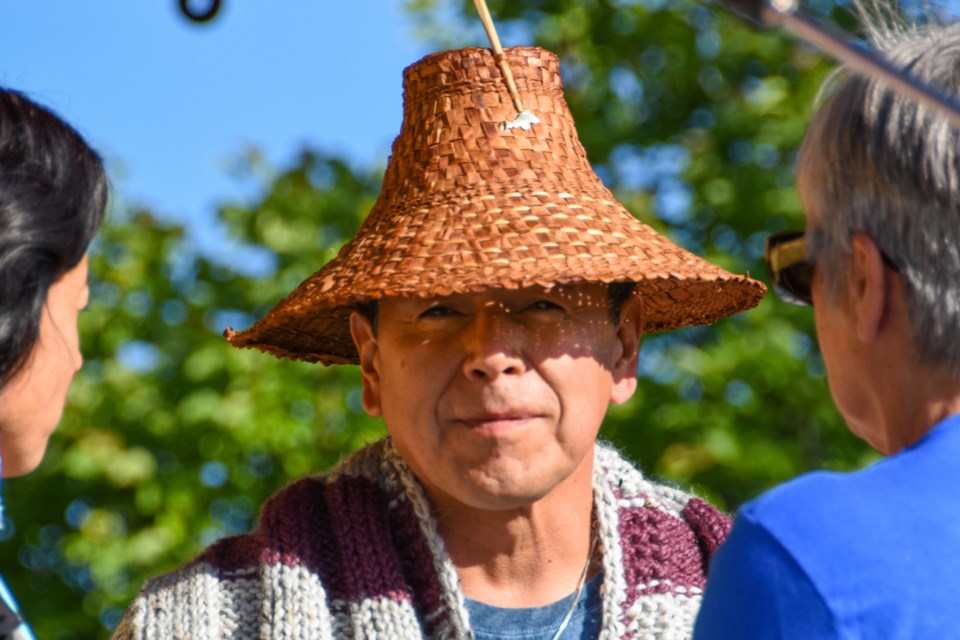Hundreds turned out at Rocky Point Park Friday, June 21, to mark National Indigenous People’s Day in an event that brought leaders from both the Tsleil-Waututh and Kwikwetlem nations together.
Younger members of Tsleil-Waututh welcomed newly-elected Kwikwetlem chief Ed Hall into his position by wrapping him in a blanket, and Tsleil-Waututh elder Ta'ah Amy George spoke to the crowd about her time in a residential school.
“They said, ‘The only thing Indian about them when they come out of these schools is going to be their blood.’ They’re going to make us ashamed to be who we are,” remembered George.
The gathering was a culmination of three months of events planned under the banner of the Welcome Post project. Now in its second year, the Tri-Cities-based reconciliation project uses small gestures to heal the relationships between Indigenous and non-Indigenous people, and this year, how both relate to water.
“We used to be able to drink the water from any of the creeks on the reserve,” said George.
When the welcoming was finished, dozens of people — Kwikwetlem, Tsleil-Waututh and the non-indigenous public — boarded five large canoes and paddled out into the east end of Burrard Inlet.
Rafted together, George, Aleck and Hall led a water blessing ceremony where everyone in the boat let fall branchlets of cedar to honour the water.
“It is well-known in the hearts and minds of the Tsleil-Waututh Nation that we inhabited both sides of the inlet since time immoral,” Aleck told The Tri-City News. “To be welcomed with such a gesture is a great step in bringing our communities together.”
The gathering came just a few days after the federal government announced its had approved the Trans-Mountain pipeline, a decision that triggered a fresh round of opposition from First Nations across the Lower Mainland.
That decision, says organizer Tasha Faye-Evans, made Friday all the more important.
“This water ceremony [is] an opportunity for us to tell the water that we are here for it, to come together as a community, to share in understanding our responsibilities to protect and defend these Coast Salish lands and waters.” said Faye-Evans.
And while she’s discouraged by the decision to go ahead with the Trans Mountain pipeline at the federal level, Faye-Evans says she’s energized by the turnout at Rocky Point Park.
“Non-indigenous people are recognizing that things have not been right,” she said. “What’s amazing about what’s happening in Port Moody is people are waking up, understanding that as current residents of these lands, they’re joining a legacy of people.”
“B.C. is not just our backyard, it’s everything. It’s our home, our life, our culture, our grandchildren’s.”



